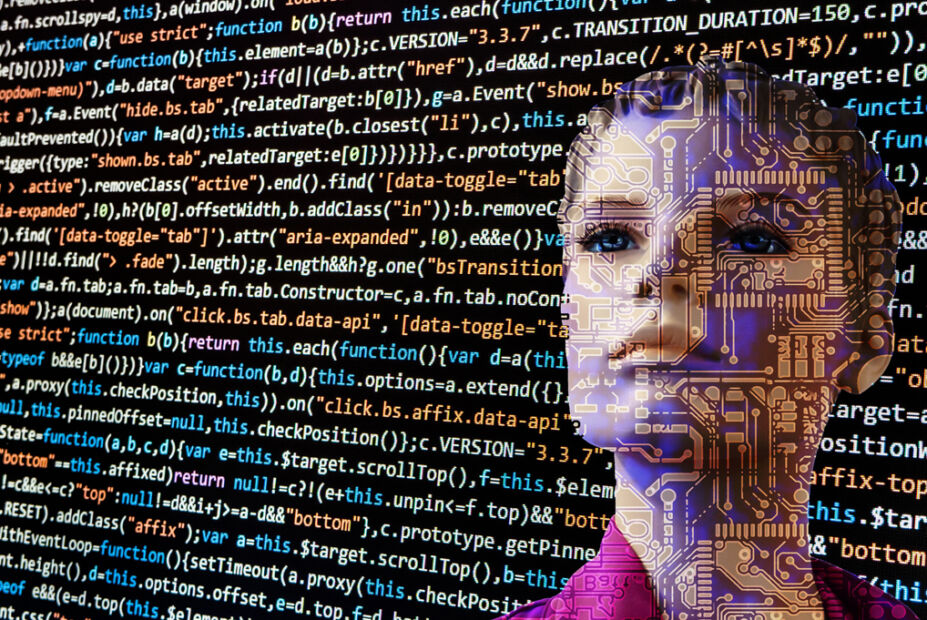AI: Should we be afraid?
- November 19, 2023
- Steve Rogerson
Steve Rogerson discusses the increased interest in AI with Sam Colley, CEO of Pod Group.

Artificial intelligence (AI) has probably never been in the news more that earlier this month when the UK government held its AI Safety Summit. Suddenly, the mainstream media were talking about AI and, of course, all the old science-fiction fears were hitting the headlines again. The robots are out to get you.
Those of us in the technical press, who have been writing about AI for years, just shook our heads in disbelief and tried to carry on as normal. But we couldn’t because, let’s be fair, generative AI has changed the game. Suddenly, AI can create original content. Well, not really, it just rehashes old knowledge into something different, upsetting genuine creative people as it goes. The change is in the amount of knowledge it can handle.
And that is the line that some reports were crossing. There is a big difference between even the most powerful AI and sentience, and I see nothing on the horizon that is likely to change that, if ever. Those I have spoken with in the IoT industry agree. My latest conversation this week was with Sam Colley, CEO of Pod Group (www.podgroup.com).
“We are in a hype cycle with AI,” he told me, “caused by ChatGPT and the like that got people interested in what AI could do. Though none of it is real intelligence.”
That said, cut through the bull and you can find some useful, beneficial applications, especially when you combine AI with IoT in what has become known as AIoT. Healthcare is a good example.
Look at post-operative care. Many people who are released from hospital after an operation have a relapse and are rushed back in an emergency setting. More than half of them die. Here, AIoT can help.
“These patients can wear monitors and be brought back to hospital before it becomes critical,” said Sam, who is also chair of the IoT M2M Council (IMC, at www.iotm2mcouncil.org).
This is because AI can spot small symptoms that might be missed by a human but can be early indicators of a problem. Likewise, in normal clinical care, AI can use a vast database of medical knowledge to assist doctors in diagnosis. There is already work in this field, for example, to spot early-stage cancers.
Logistics is another area where AIoT can bring improvements, such as in route planning and route optimisation. It can also spot unusual behaviour, such as, say, a van stopping for a small number of minutes at somewhere unexpected. The time stopped might be too small for a human monitor to register anything odd; maybe just a comfort break. But if it develops into a pattern and coincides with small amounts of goods going missing, then AI is more likely to flag an alert of maybe illegal activities. With the vast increase in ecommerce and large fleets of self-employed drivers used by budget delivery companies, this could solve lots of problems.
So what about the scary stuff we heard about after the summit?
“I don’t think AI exists in a way that it is possible to be scared of,” said Sam. “It is just about data processing. There are far more benefits than threats. However, security does need to be seriously considered. IoT has so many devices deployed, we have to make sure security isn’t left behind for a minute. We should apply this to AI too.”
The problem is not AI itself but how it could be used by those with criminal intent. Combine that with the power of quantum computing and, as Sam pointed out, every password in the world would be crackable in a few minutes.
“There is not a lot to worry about today, but there could be tomorrow,” he said. “There will always be someone wanting to benefit themselves rather than someone else.”
This is why security needs to be considered in parallel with AI development and not something to be tagged on afterwards. Do I really need to say that? People have been pushing that message all my life for whatever technology comes along.
For the IoT industry, the growth in AI is game changing, especially with more processing power being put at the edge.
“IoT is over its hype cycle,” said Sam, “but we still haven’t seen mass IoT. AI can help drive some of the data we can extract for IoT applications. The convergence is interesting. There has been machine learning in IoT for a long time. Is this the next natural step? There is a lot of hype and there is a lot to learn.”
Despite this, many companies are struggling to recruit people with expertise in AI. The industry is just too new.
“To recruit an AI scientist costs a lot of money and there are not a lot of them out there,” said Sam.
For now, he believes there will be much trial and error for a while as people investigate how AI can be applied.
“Hopefully,” he said, “AI can have a positive impact on lots of people’s lives.”
I agree, and so does my robot.




